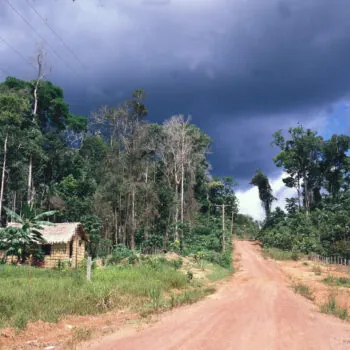The fiscal response to the Covid-19 crisis is an opportunity to establish a green economy but finance ministers across the globe need to coordinate their actions for the biggest impact.
The size and scale of the economic response to address the Covid-19 crisis will inevitably shape the economic landscape for the coming decade, if not longer. Decisions made in the next three to six months will determine whether our economies can be resilient in the future by staying within “safe” climate limits.
Worldwide, finance ministers now find themselves in a unique position – how they react to the crisis will shape the scale and pace of the economic recovery, its social ramifications, and whether we create real sustainability and resilience in the face of climate change.
The Network of Greening the Financial System, a group of central banks and supervisors supporting the clean energy transition, has stated the response to the health crisis should be “to act now to lay the groundwork for an orderly transition to a more sustainable economy and climate-resilient financial system – a ‘green’ recovery”.
But the Coalition of Ministers of Finance for Climate Action, an alliance composed of leading finance ministers from around the world committed to accelerate actions to implement the Paris Agreement, has yet to issue a statement on their vision for national responses to Covid-19. Doing so would provide an opportunity for members of the Coalition to clearly state their commitment to both green their country’s response and deliver a more resilient economy, and they should not delay.
The Helsinki Principles, which Coalition members adopted in 2019, offer a theoretical framework for ensuring a green recovery, but the challenge now is to make certain it translates into real-world policies. For many countries this is a daunting task.
There is no doubt in the current crisis, finance ministers are under huge amounts of pressure. They are struggling for the capacity to look beyond the current phase of their response. However, if they raise their eyes from immediate concerns, they will find that they are not alone.
Finance ministers can access external technical assistance and fiscal support from Multilateral Development Banks (MDBs) and Climate Investment Funds to ensure a green recovery. They can also draw on the private sector to share the financial load.
The twin act of making a clear statement on ensuring a green recovery and accessing external assistance to deliver it will send a clear signal to private investors that the Covid-19 response will reshape the economy along more sustainable lines. The private sector is standing ready to invest in the green economy and global investors have made their preferences clear for a green recovery rather than for fossil fuels; as Mark Carney – former governor at the Bank of England – said, this is the greatest commercial opportunity of our time.
Making this declaration early and loudly will increase its effectiveness but we need more than talk.
As we saw in the 2008 financial crisis, where there was positive rhetoric around a clean energy growth but in reality only 16% of the stimulus was actually green with the rest flowing to support ‘business as usual’. Moreover, a lack of clear commitment from governments at the time meant there was no impetus for realigning and modernising the economy. Countries soon returned to their previous unsustainable economic models.
To deliver a different outcome from 2008, we cannot treat climate action as a separate element of the response. Instead, it should be central to all aspects of recovery planning; a just and green recovery is the only way to enable a resilient future economy. Finance ministers should begin by aligning domestic and international resources in support of a clean recovery. Leveraging MDBs’ ‘know how’ at an early stage can also help finance ministries keep sight of their longer-term goals, even as they contend with a once-in-a-generation economic shock.
Of course, all countries are different and will enter each phase of crisis response at a different time. This disparity in timelines can present a challenge for clear and coordinated action. However, while economic and institutional landscapes differ between countries, their desired outcomes are similar. The levers to achieve a green recovery may be placed or timed differently in different jurisdictions, but their functions are the same.
Setting a clear goal and seeking technical assistance to deliver it also signals to credit rating agencies that a country has a strategy for a green recovery. Developing such a plan to promote sustainable growth should make a ratings downgrade less likely, which is a major concern for finance ministers. The case for building a green economy is heightened by the work credit rating agencies are doing to incorporate climate risks into their country analysis.
We have already heard positive noises about greening the recovery coming from central bankers, financial regulators and the Network of Greening the Financial System. Nevertheless, the heavy lifting ultimately sits with those in charge of the pursestrings and the fiscal measures they devise.
Finance ministers are facing unprecedented challenges but making a clear and strong statement about a green recovery, and then turning to international institutions to provide tailored support will give them the resources they require to turn a once-in-a-generation crisis into the foundations of a net-zero and resilient economy.


